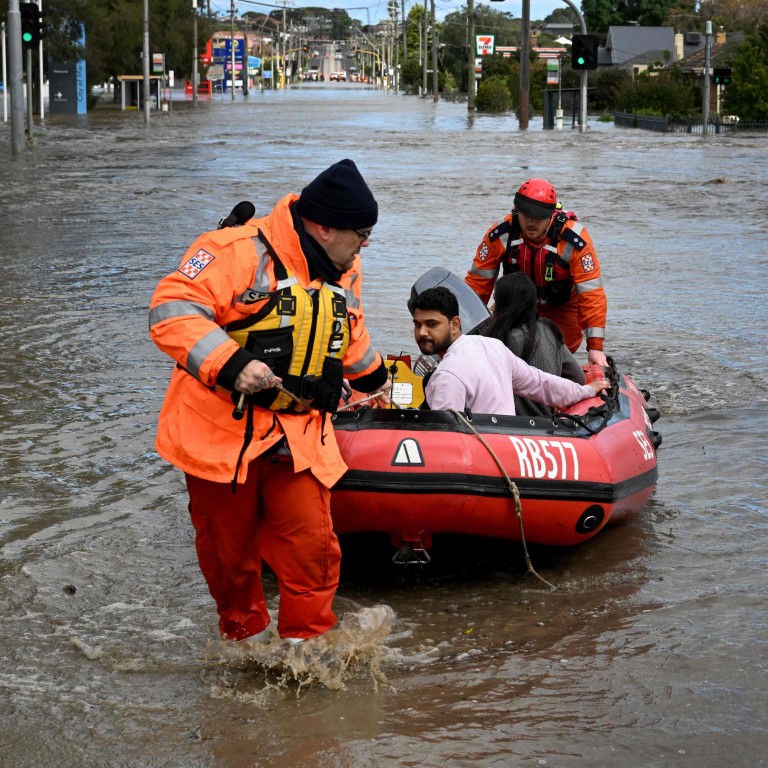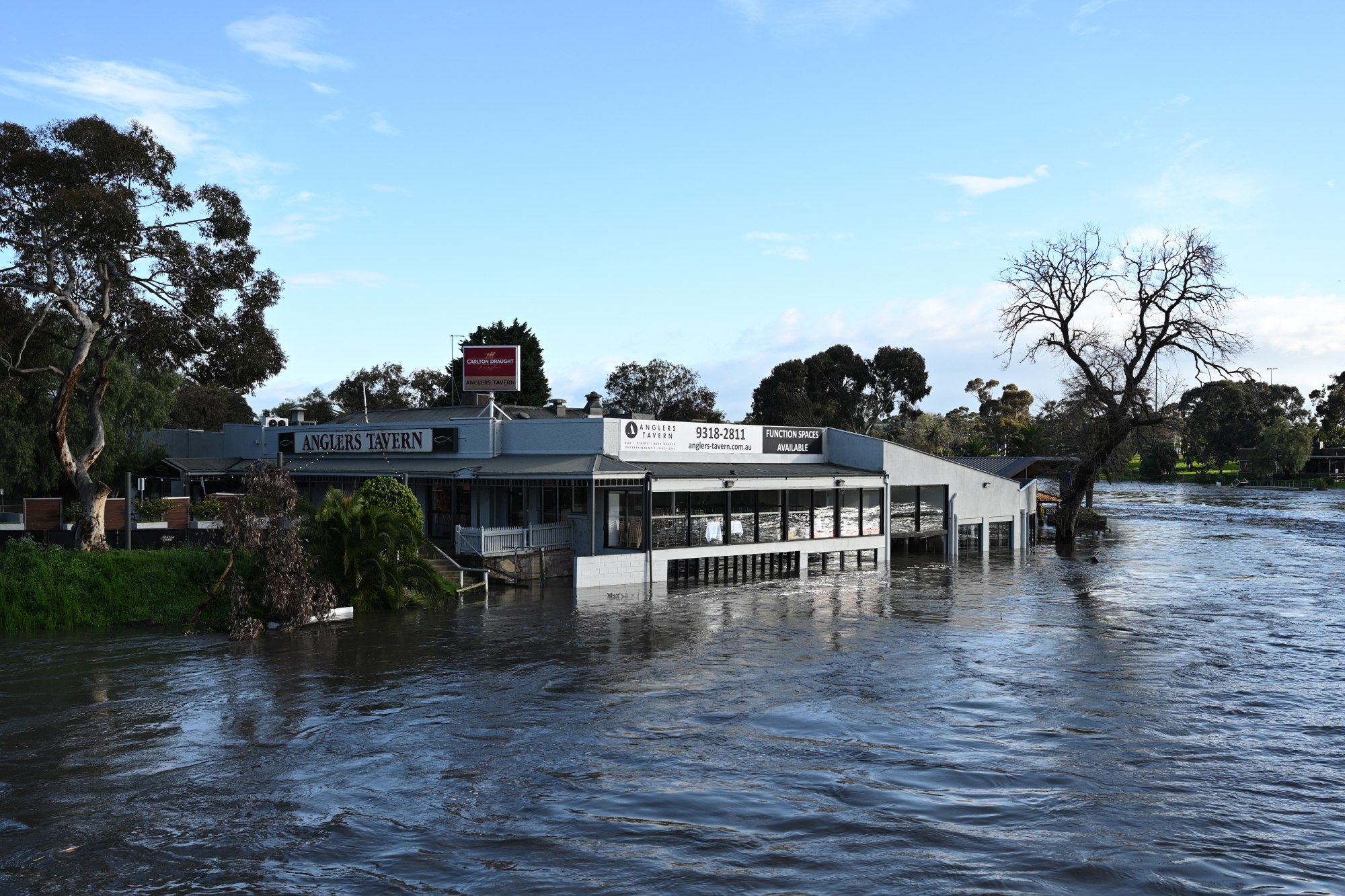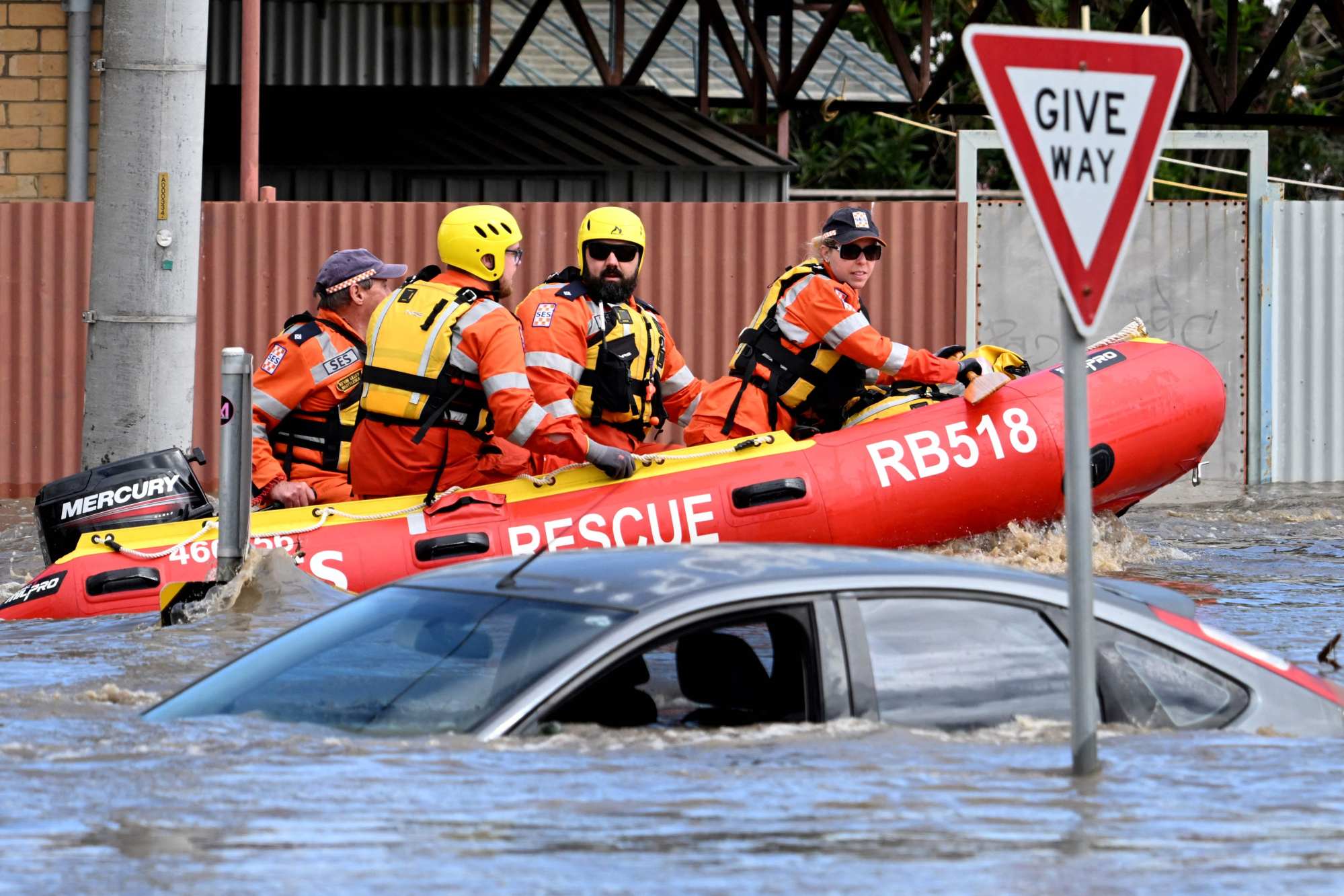
Australia floods: thousands ordered to evacuate as rising water inundates homes
- About 500 properties were surrounded by floods and cut off from emergency services in the worst-hit state of Victoria
- Tasmania and New South Wales also issued evacuation orders as water moved downstream
A major flooding emergency was declared in Victoria – Australia’s second-most populous state – where rapidly rising waters forced evacuations in the Melbourne suburb of Maribyrnong.
Cars left on the streets of the suburb were almost completely swallowed by the floods, while some stranded residents had to be saved by inflatable rescue boats.
Maribyrnong resident Leah Caluzzi spent Friday morning salvaging sports gear from the local cricket club.
“Our home oval is underwater at the moment, the water is well over waist high,” she said.
“I live in the same suburb and it’s a bit scary.
“Luckily our house is a bit higher up, but lots of houses around the river are impacted.”
Why Pakistan ‘super floods’ are a warning for South Asia, rest of the world
State premier Daniel Andrews told reporters 500 homes in Victoria had been “inundated”, while a further 500 properties were surrounded by floods and cut off from emergency services.
“That number will definitely grow,” he said on Friday.
Maribyrnong resident Betty Ristevesky said the situation was unsettling.
“It’s getting a little bit nerve-racking now,” she said.
“The water is getting close and we can see it in front of us.”
While the worst of the rain had passed by late Friday morning, the state emergency service warned the floods would get worse as water flowed downstream into swollen river catchments.
“There are not many parts of Victoria that aren’t experiencing major flooding over the coming days,” emergency services spokesman Tim Wiebusch told reporters.
Although floodwaters in parts of Melbourne had started receding on Friday afternoon, the worst was to come for other parts of the state.
About 4,000 homes in Shepparton, about two hours north of Melbourne, could be flooded by early next week, Wiebusch said.

Emergency management commissioner Andrew Crisp said the Australian army was being deployed to help residents sandbag their houses.
“This is a major emergency for the state of Victoria,” he said.
A disused Covid-19 quarantine centre with a capacity for 1,000 people would be used as shelter.
Northern parts of Tasmania – an island state south of Victoria – were on Friday also preparing for major floods.
Mass evacuation orders were issued, while heavy rains forced the closure of some 120 roads.
“Lives are at risk from floodwaters,” Tasmania’s state emergency service said in a statement.

In New South Wales – Australia’s most populous state – an evacuation centre was set up after intense downpours on Thursday evening in Forbes, an inland town about five hours’ drive east of Sydney.
Australia’s east coast has been repeatedly lashed by heavy rainfall in the past two years, driven by back-to-back La Nina cycles.
Tens of thousands of Sydney residents were ordered to evacuate in July when floods again swamped suburbs on the city’s fringe.
Climate change does not cause La Nina events, but scientists believe it could make periods of flooding more extreme because warmer air holds more moisture.

.png?itok=arIb17P0)
